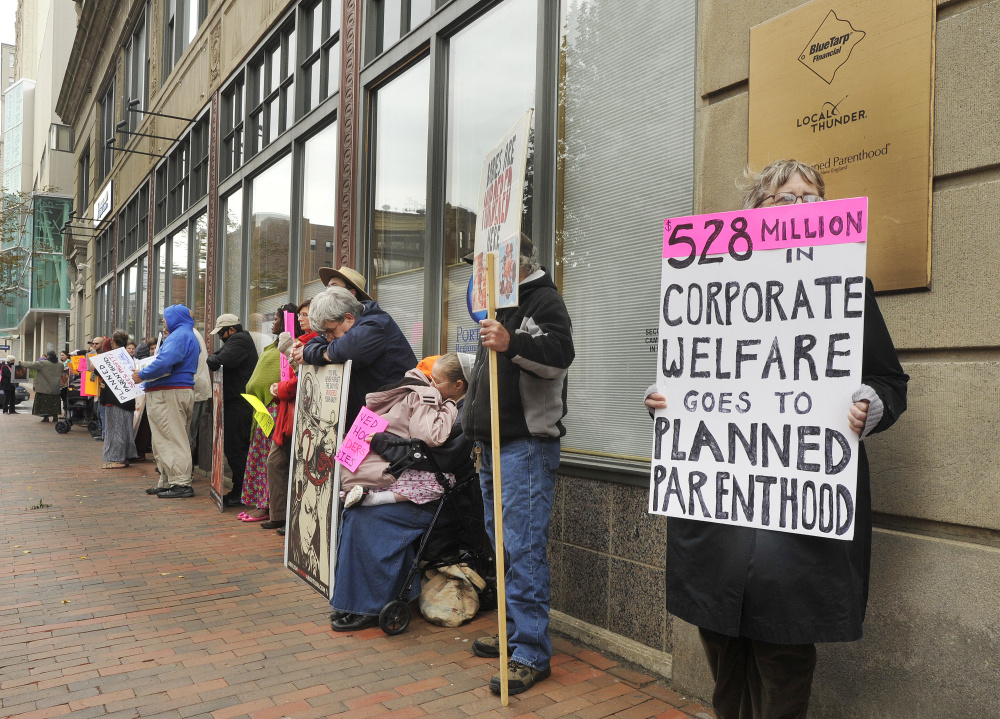The anti-abortion activists whose notorious videos accused Planned Parenthood of illegal for-profit fetal tissue sales are now facing criminal charges themselves. But the indictment doesn’t undo the damage that the “sting” tapes have done to Planned Parenthood’s reputation and funding — at the expense of all the women it serves.
The charges follow a Houston grand jury’s investigation into undercover footage shot by David Deleiden and Sandra Merritt of the Center for Medical Progress. No wrongdoing by Planned Parenthood was discovered. However, Deleiden and Merritt each face a felony count of governmental record-tampering for allegedly making and presenting fake driver’s licenses for their April meeting with Planned Parenthood officials.
The release of the covert recordings last summer fueled a controversy that has yet to simmer down. Maine has so far been spared the most dire fallout, including a fatal shooting at a Colorado Springs Planned Parenthood and arsons and a spate of attacks elsewhere.
However, those who take part in the weekly protests outside Planned Parenthood’s Portland clinic have been energized, resulting in an unprecedented state effort to permanently ban one high-volume demonstrator from coming within 50 feet of the facility. And even Attorney General Janet Mills’ lawsuit against the protester hasn’t quelled tensions: The crowds at subsequent demonstrations reportedly have been loud enough to be heard inside the building.
Citing both rhetoric and recent events, local Planned Parenthood officials announced last week that they’re temporarily replacing volunteer patient greeters with clinic employees and a Portland police officer hired by the nonprofit.
We hope that by the time the volunteer greeter program is reinstated, discussion will be underway about how the city can ensure peaceful access to the health center.
Portland repealed a 39-foot protest-free zone in 2014, after a similar buffer was deemed unconstitutional by the U.S. Supreme Court. A more workable option for our city could be a 15-foot buffer. The one mandated under New York state law wasn’t affected by the Supreme Court ruling; a similar ordinance in Pittsburgh was upheld last March, though that ruling is now being appealed. And there are surely other alternatives.
The videos also spurred a baseless campaign to block the disbursement of federal funds for Planned Parenthood. A defunding proposal stalled in Augusta but enjoyed a major symbolic victory in Washington, making it all the way to President Obama’s desk before being vetoed.
The federal funding that’s been under attack ensures basic health care for millions of low-income American women (abortion gets no U.S. government appropriations). At all levels of government, policymakers should now shift their focus from depriving Planned Parenthood of financial support to making sure that it’s accessible to more of those who need its services.
Send questions/comments to the editors.



Comments are no longer available on this story